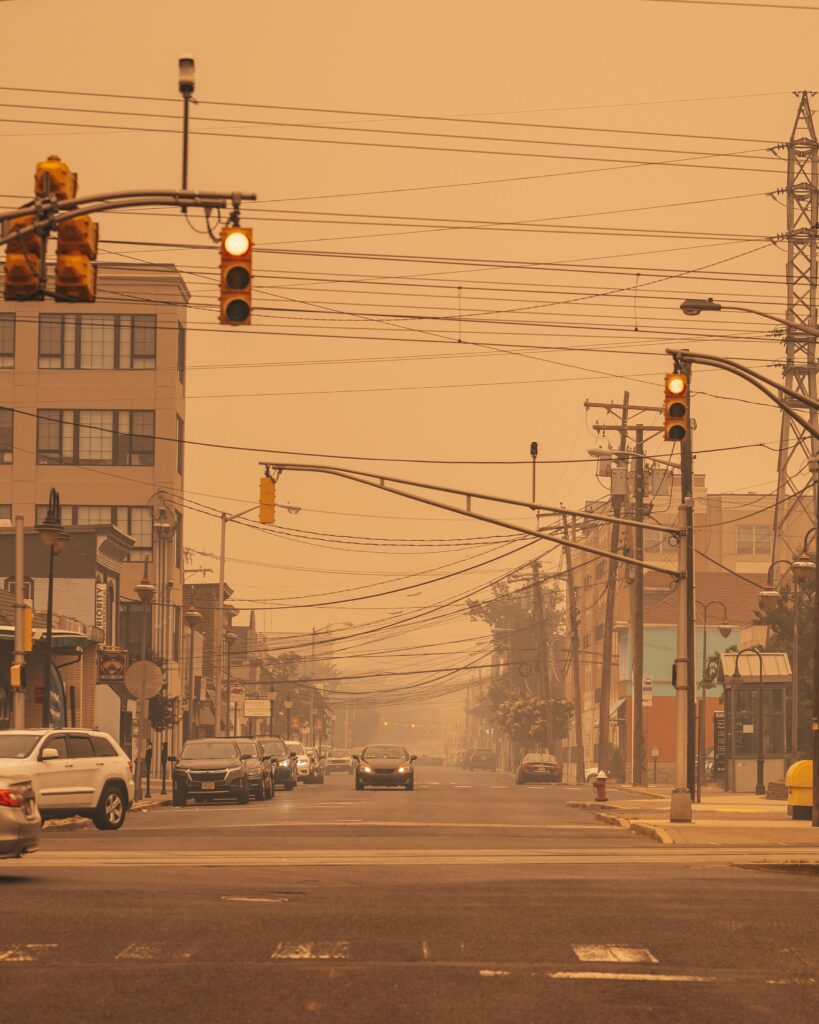Wildfires and hot temperatures can have significant impacts on both outdoor and indoor air quality in the Northeast United States. These effects are influenced by various factors, including the intensity and frequency of wildfires, meteorological conditions, topography, and local human activities. Here’s how these factors can contribute to changes in air quality.
Outdoor Air Quality
- Wildfire Smoke: Wildfires release a complex mixture of pollutants into the air, including fine particulate matter (PM2.5), volatile organic compounds (VOCs), carbon monoxide (CO), and nitrogen dioxide (NO2). These pollutants can travel long distances and significantly degrade air quality, even hundreds of miles away from the source.
- Particulate Matter: PM2.5 particles from wildfire smoke can penetrate deep into the respiratory system, causing or exacerbating health issues such as asthma, bronchitis, and heart problems. Vulnerable populations, such as children, the elderly, and those with pre-existing health conditions, are particularly at risk.
- Ozone Formation: High temperatures can lead to the formation of ground-level ozone through photochemical reactions involving precursor pollutants like NO2 and VOCs. Ozone can irritate the respiratory system and cause breathing difficulties.
- Regional Air Circulation: Weather patterns play a crucial role in air quality. High temperatures and wildfires can alter atmospheric circulation patterns, affecting the dispersion of pollutants. Stagnant air can trap pollutants near the ground,
worsening air quality.

Indoor Air Quality
- Infiltration of Smoke: Wildfire smoke can infiltrate indoor spaces, even if doors and windows are closed. This can lead to indoor air quality issues, especially in homes without proper filtration systems.
- Health Effects: Poor outdoor air quality can impact indoor air quality. Particles from smoke can enter buildings and affect occupants’ health, particularly if indoor ventilation is inadequate.
- Allergens and Irritants: Wildfires can release allergens and irritants that may affect people with respiratory conditions, leading to discomfort and health issues indoors.
Mitigation Strategies
- Air Quality Advisories: Authorities often issue air quality advisories during wildfires and hot weather. Residents are advised to stay indoors, keep windows and doors closed, and use air purifiers with HEPA filters.
- Indoor Precautions: Using air purifiers, keeping indoor spaces clean, and avoiding activities that generate indoor air pollutants (e.g., smoking, burning candles) can help maintain better indoor air quality.